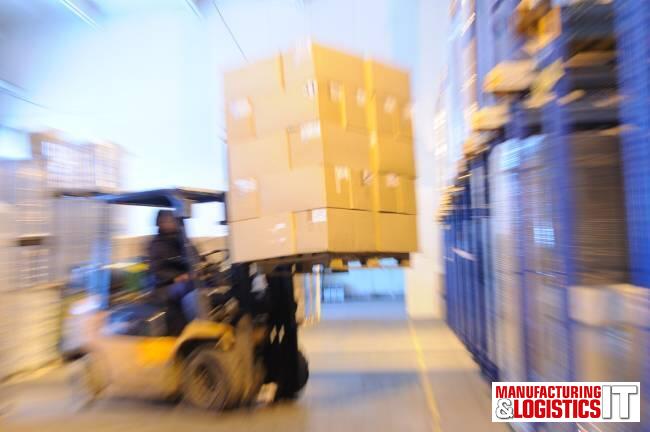ERNRIDE is furthering the use of autonomous, electric trucking within logistics centres, production facilities, intermodal and maritime terminals, enabling its customers to immediately and significantly improve productivity, sustainability and worker safety.
Having raised $60M to-date, including a $50m Series A in September 2023, the Munich-headquartered company’s end-to-end solution is being used by DB Schenker and HHLA to move containers and goods. The company is accelerating the transition towards automated and sustainable logistics by creating the most advanced and reliable human-machine collaboration technology.
The major challenges in the logistics industry today are the extreme truck driver shortage, growing CO2 emissions, and tight profit margins. These problems have already had a significant impact on society and are forecasted to continue increasing. For example, the current shortage of 400,000 truck drivers in Europe alone is projected to increase to 2,000,000 truck drivers by 2026. Despite autonomous driving being the obvious solution to these challenges, many attempts to introduce autonomy fail. None of the current offerings provide an immediate, coherent, and economically reasonable solution. FERNRIDE’s human-assisted approach to autonomy addresses these industry challenges for its customers today, unlocking the benefits and reliable service of driverless operations from day one.
Viability of Autonomous Vehicles
There is growing scepticism surrounding the short-term viability of fully autonomous vehicles on public roads, with a number of incidents demonstrating that a full roll-out will potentially be decades away. According to GlobalData, the AV industry won’t develop a fully self-driving car until 2035.
FERNRIDE has a different approach to autonomous mobility and believes that the goal of autonomy should not be to remove humans from the equation. It uses remote human teleoperators who oversee the trucks and assist when needed, for example if there is an unexpected obstacle on the route or a challenging manoeuvre is required.
The involvement of a remote operator is essential for the immediate feasibility of autonomous trucking, meaning that FERNRIDE can solve logistics problems for its customers today. FERNRIDE is committed to solving issues for its customers within their yards first, ahead of taking its solution out onto open roads, initially short haul, hub to hub, and then long haul.
Rather than human assistance being a stepping stone on the way to full autonomy, FERNRIDE believes that remote human oversight of autonomous vehicles will always be required.
Amplifying Output In Ports
Human-assisted autonomy is vital for increasing productivity within ports, with the supply chain having been impacted in recent years by disruptions in the form of COVID-19, resource scarcity, extreme weather, geopolitical issues, and a shortage of truck drivers.
Increased wait times at ports are a time waster for drivers, even cutting into their pay, but with FERNRIDE’s solution, multiple trucks can be controlled at any given time by a single teleoperator. This means, for example, that while one truck is being loaded or unloaded, other trucks can simultaneously be driven.
Currently, each remote teleoperator can control four trucks at any given time. As autonomous technology is developed and enhanced, the goal is to increase this ratio so that one driver can oversee an entire fleet of trucks.
Electric-Powered, Sustainable Mobility
According to the Carbon Trust, up to 90% of a business’s environmental impact can lie in its supply chain, while BCG states that the global supply chain accounts for more than 50% of annual greenhouse gas emissions. There has never been a more pressing need for the supply chain to decarbonise, and companies are under increasing investor, regulatory, and public scrutiny to lower their emissions.
In contrast with the diesel-powered, high-polluting trucks typically used at distribution facilities, FERNRIDE’s solution is designed for electric trucks that dramatically reduce its customers’ carbon footprint and noise emissions while also lowering fuel costs.
Bringing Trucking into the 21st Century
With its human-machine collaboration technology, rather than making jobs obsolete, FERNRIDE will usher in a new era of mobility in which the nature of trucking jobs evolves for the better. In 2021, there were over 500,000 large truck accidents in the United States alone, a year-on-year increase of 26%, and by keeping humans away from hazardous areas FERNRIDE helps its customers improve safety and conditions, while representing a much more desirable job for truckers who have been increasingly leaving the industry because of long working hours, poor conditions, and low pay.
FERNRIDE CEO & Co-Founder Hendrik Kramer, aged 28, comments: “Our mission is to be the leading solution for autonomous electric trucking and we firmly believe that our human-machine collaboration approach holds the key to resolving critical challenges in the supply chain, not only today but in the future as well. The roll-out of autonomous vehicles on public roads has, for the past decade, always been ‘two years away’, but because of the extent of the technology and research required, we’re still not close to full autonomy on roads.
“That doesn’t mean that companies should have to wait years, if not decades, to unlock the benefits of autonomous mobility. Our human-machine collaboration technology is enabling our customers to achieve greater productivity today, while reducing their emissions and improving the safety of workers on-site.
“Looking ahead, even in 20 or 30 years time, we still expect humans to be overseeing autonomous vehicles. The capabilities of the teleoperators will scale as the technology develops, and reliance will gradually decrease, but human-machine collaboration is not only essential right now, it’s here to stay.”
Hendrik Kramer discovered an industrial application for his team’s research on autonomous driving whilst studying at TU Munich, one of the world’s most prestigious universities for automotive engineering research, and Stanford University. In 2019 he founded FERNRIDE with CPO Dr Maximilian Fisser and Chief Engineer Jean-Michael Georg.
Together they have scaled the company to a 130-strong team across Munich and Wolfsburg, attracting alumni from tech and automotive giants including BMW, Audi, Argo.AI, Mobileye, Amazon, and Tesla, and boasting an experienced senior management team.



